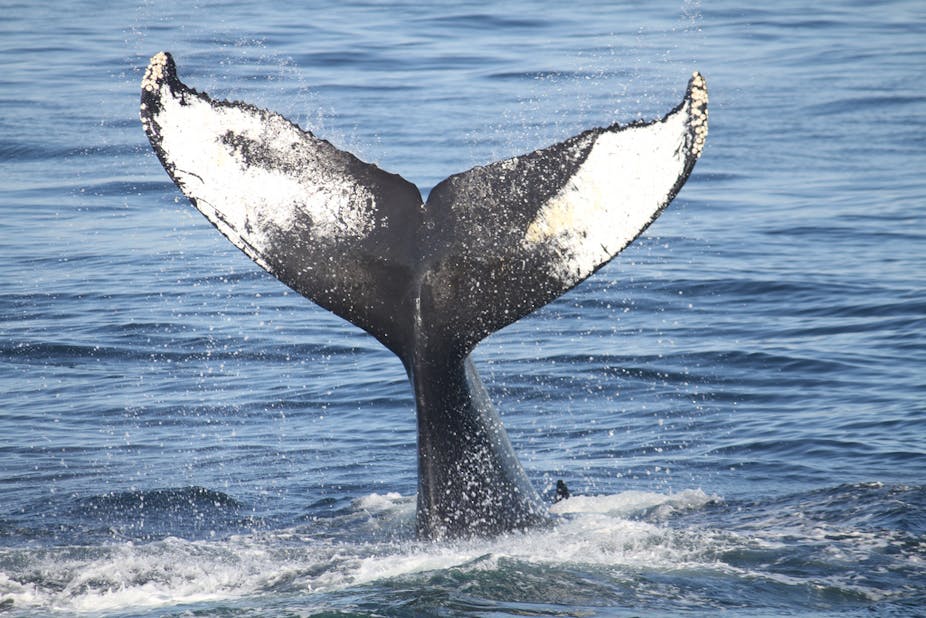The Australian government has sought urgent high level talks over an announcement by South Korea that it intends to resume whaling for “scientific” reasons.
South Korea delegate Park Jeong-Seok has told the International Whaling Commission (IWC) it would submit its research plans when the IWC met again in 2013, but has given no other details. However it is thought the Koreans would target minke whales.
Murdoch University Associate Professor Lars Bejder, at the Centre for Fish, Fisheries and Aquatic Ecosystems Research, says not only can this research be obtained in other ways, but we shouldn’t be allowing this when we don’t know enough about the gentle giant’s numbers.
What was your reaction upon hearing the announcement?
It’s certainly disappointing, there’s absolutely no need for these kills under the disguise of “scientific whaling”. The kind of research that they [South Korea] are suggesting they need to do can certainly be done in other ways, so it’s a blatant disrespect to the 1986 moratorium that was implemented to stop whaling.
Will this have a negative affect on whale numbers in the Sea of Japan?
We don’t know enough to say that. It’s likely the stock they will be taking will be off the Korean Peninsula, in the Sea of Japan, and that’s likely the “J-stock” [minkes in the East China Sea, Sea of Japan, and Yellow Sea], and that stock is already subject to a significant amount of by-catch (accidental catches in ghost-nets and by trawlers) in fisheries already.
What are the things they want to use as an excuse for “whaling for science”? They want to see what’s in their stomachs to see what kind of fish they’re eating, but because these animals are already being by-caught in fisheries, they could be using those animals for that reason. So one argument is that these animals that have been by-caught can be used for this purpose.
The other issue is that the J-stock is not the healthiest of stocks in regards to numbers. What’s really interesting is over the last five to seven years there have been a number of high-ranking peer-reviewed publications in both Nature and Science in regards to the whale-fish “conundrum” of whether whales’ consumption of fish has an implication on fish stocks.
This is one of the reasons South Korea is saying they have to do this research. Elsewhere (North-west Africa, the Caribbean and other places in the Pacific), non-lethal research and modelling exercises have been carried out, showing that the whale consumption of fish is several orders of magnitude lower than the total fisheries catches combined.
We also know that the total fish consumption by whales is two orders of magnitude lower than the amounts taken by other groups in the ecosystem. So the idea that whale stocks are keeping fish stocks down is, from all scientific evidence that we have that is published in high-impact journals, simply not true.
Can fish populations in the Sea of Japan sustain whales and the industry?
All evidence from the scientific literature quantifying the effects of whale consumption of fish is showing much lower magnitudes than that of total fisheries combined. So the idea that whales are competing with fisheries is not relevant. If you start looking at baleen whales and tooth whales, in all the other situations where its been looked at in depth, it shows that Baleen whales such as Minke whales are not a threat to fisheries. In fact, tooth whales (a lot of the dolphin species) are the ones that are impacted by fisheries, not the other way around.
South-Korean delegate to the IWC Park Jeong-Seok says moral preaching from other states is not appropriate, and the only forum for debate is legal. Do you think there is a moral level to the debate?
The thing is we don’t know if it’s sustainable or not, that is the issue. Because we don’t know enough about these whale stocks, we can’t say what would be an acceptable level of biological removal. The argument to use lethal scientific whaling to figure out whether that’s possible or not just doesn’t string together because you can get that information from other sources, or in other ways.
How would a researcher such as yourself go about conducting the tests they are saying they must kill whales for?
If you want to look at what whales eat, there are many different ways of doing that because there is a by-catch of these animals already in fisheries, they could be using these animals that have already been killed. We do have a lot of technology these days that enables us to look at what animals eat; for example we can put tags on whales, there are multiple ways of getting at these questions where we don’t have to kill them, and that’s what Australians and other countries are doing in their research.

Should the loophole in the law allowing whale-hunting for scientific purposes be changed? Would this be a negative thing for legitimate science?
That’s a difficult question. At the end of the day we have to figure out what’s sustainable, and what isn’t sustainable. There’s a moral debate about whether cetaceans should be killed or not, but for me that’s not what this is about, this is about “we don’t know what populations can sustain”.
We certainly know that during the whaling era, that populations of large whales were hunted almost to extinction. Some populations are starting to recover which is encouraging, but many others haven’t recovered yet, and we simply don’t know how much more it’s going to take to tip them over the edge. Before we have solid data and are able to say what they can and can’t take, we certainly shouldn’t be doing it.
As long as we don’t know we should err on the side of caution. Yes, we should be collecting scientific data to help inform that discussion, but that scientific data that’s collected should not be a means to kill.
Comments welcome below.

